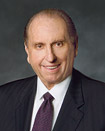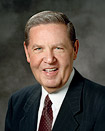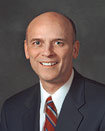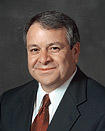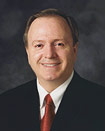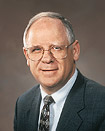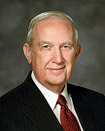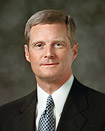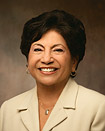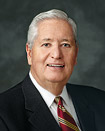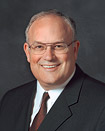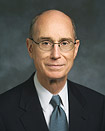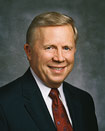This entry is part of my general conference application series.“As Many as I Love, I Rebuke and Chasten”, by D. Todd Christofferson
Of the Quorum of the Twelve Apostles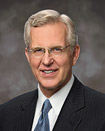
I enjoy the tangible indicators of progress that I find in yard work. Mowing a lawn, trimming a hedge, and weeding a garden give definite before-and-after pictures of the results of work and labor.
Yesterday, my wife informed me that we have two poisonous plants growing in our yard. I replied that I would rather have poisonous plants than venomous! Since I don't plan on eating the trees and bushes, I'm not too concerned with poison, but I don't want the plants to retaliate when I go out to work in the yard--which involves what they may see as attacks against them.

Here is one of our poisonous plants.
Each time I trim a bush or tree, I'm reminded of the account that Hugh B. Brown gave of being overlooked for a military promotion because of his Church membership. The story of the currant bush--which I first heard from Truman G. Madsen, and Elder Christofferson repeated here--echoes in my mind every time I shape a plant for a greater purpose. As is also relayed in the account, when I feel chastened or corrected from the Lord, I often hear the words I say to plants when I prune them "Look, little currant bush, I am the gardener here, and I know what I want you to be."
And, yes, in case you're wondering, I call all my plants "little currant bush" when I imagine them complaining against my imposed improvements.

This is a currant bush.
To the faithful reader of this blog (if there are any), you may note that I referenced this currant bush story recently (
link here). If this causes you to complain, you may anticipate my response: "I'm the gardener here, and I know what [I'm doing]"!
The previous post was my response to Elder Scott's message of love and care for those around us. I naturally thought of my angel wife and our sweetheart children. The very next talk was about correction, and included direction for parents:
Parents can and must correct, even chasten, if their children are not to be cast adrift at the mercy of a merciless adversary and his supporters.
I spoke of receiving correction from the Lord in loving terms because I can testify of many times when, like the currant bush, I've later said, "Thank you, Mr. Gardener, for loving me enough to cut me down." But I must admit that when I "prune" my children, I need to be much more careful than when I prune trees in the yard.
I can be brazen in cutting back a bush because I know that it will ultimately respond well to my efforts. But if it doesn't, I will become a better gardener.
I need to be cautious against being brazen in "pruning" my children because I readily admit that
I don't know what I'm doing! A misshapen or missing bush in the yard is a small thing, but a damaged or missing child in a family is something I don't want to be responsible for.
I'm grateful that I'm not alone. If I'm frank, I'll admit that many of the times when I've received pointed or sharp correction from the Lord have come in response to poor parenting decisions.
Parents may jokingly (or seriously) say that they experiment on their firstborn children and become better parents for any children that come afterward. While there is some truth to this, I need to remember that I have access to the best parent--the best gardener. I will research a job in the yard or with home repairs before I begin a project so I can be qualified to say: I'm the gardener here; I know what I'm doing. Likewise, I need to seek direction from a loving Father in Heaven as I work at shaping my children and myself.
And when I do receive correction--when I'm being pruned--I need to remember to not be venomous (or even poisonous) in response.
He is the Gardener. He knows what he wants me to be.
